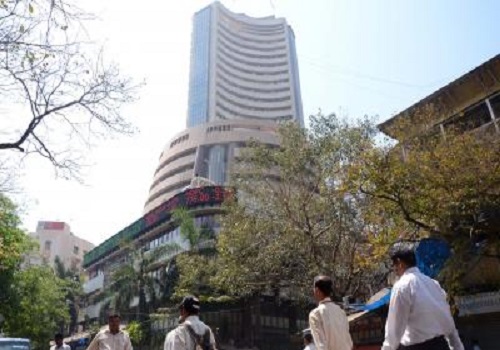MPC pauses; RBI announces G-SAP 1.0 - ICICI Securities

Follow us Now on Telegram ! Get daily 10 - 12 important updates on Business, Finance and Investment. Join our Telegram Channel
MPC pauses; RBI announces G-SAP 1.0
* MPC unanimously votes to keep repo unchanged: In line with our and consensus expectation, the MPC kept repo rate unchanged at 4%, reverse repo at 3.35% and MSF at 4.25%. The committee’s vote was unanimous.
* Committee shifts from calendar-based guidance to state-based guidance: Deviating from the practice in the past policies, the MPC shifted from calendar-based guidance to state-based guidance. The April 2021 policy stated that the MPC will continue with accommodative stance “as long as necessary to sustain growth on a durable basis” against the Feb 2021 statement of maintaining accommodative stance “at least during the current financial year and into the next financial year.” The emergence of second wave of Covid-19 in some states and the resultant mini lockdowns have made the growth outlook for FY22 more uncertain. Hence, the MPC may have felt that shifting to state-based forward guidance will give it more flexibility to adapt to the evolving situation compared to an explicit calendar-based guidance.
* Inflation forecast upped modestly; growth forecast remains unchanged: The committee upped inflation forecasts modestly for H1FY22. It now expects CPI to print 5.2% in Q1 and Q2FY22 each (up from 5.0%-5.2% in H1FY22 in Feb policy), 4.4% in Q3FY22 (up from 4.3% in Feb policy) and 5.1% in Q4FY22. Hence, implied inflation in FY22 is seen at 5%. The committee retained its GDP growth forecast for FY22 at 10.5% despite large stimulus in major economies and their likely impact on global growth, partly due to the resurgence of Covid-19 infection in some states. It now expects real GDP growth at 26.2% in Q1, 8.3% in Q2, 5.4% in Q3 and 6.2% in Q4FY22. The central bank noted that the vaccination drive, fiscal stimulus, PLI scheme for several sectors, and rising capacity utilisation are likely to support growth while the recent surge in Covid-19 infections and lower consumer confidence are likely to act as headwinds.
* RBI extends several liquidity facilities till Sep 2021…: In order to provide continued support to the still nascent recovery, the RBI extended several liquidity facilities which were set to expire on 31 Mar 2021. It extended ‘On Tap TLTRO’, primary sector lending classification for bank lending to NBFCs, and enhanced WMAs limit for state governments till 30 Sep 2021. It also announced fresh liquidity support of Rs 250bn to NABARD, Rs 100bn to NHB and Rs 150bn to SIDBI.
* … and announces G-SAP 1.0 for Rs 1trn in Q1FY22: In what can be termed as the most significant announcement of this policy, the RBI announced secondary market ‘G-Sec Acquisition Programme’ or G-SAP 1.0. Under this programme, the central bank will commit to buy specified amount of government securities to ensure orderly evolution of the yield curve. This is a significant development, especially on the backdrop of the recent tug-of-war between the RBI and the bond market over g-sec yields. By purchasing a large amount of gilts from banks, the RBI is likely to create additional demand for them thereby keeping borrowing costs low. This move led to a rally in the bond market as yields corrected sharply following the announcement. The RBI will buy government securities worst Rs 1trn in Q1FY22.
* RBI aims to achieve the delicate balance of nudging short-term rates up without spooking the market: Short-term money market rates have been trading below reverse repo rate in the recent past. To enforce the sanctity of reverse repo as the floor of LAF corridor, the RBI announced longer-term Variable Rate Reverse Repo (VRRR). This is likely to harden short-term rates and flatten the yield curve. While details of longer-term VRRR will be announced in due course, we believe higher tenor and amount is likely to make the tool effective.
To Read Complete Report & Disclaimer Click Here
For More ICICI Securities Disclaimer https://www.icicisecurities.com/AboutUs.aspx?About=7
Above views are of the author and not of the website kindly read disclaimer










Tag News

Monthly Debt Market Update, September 2023: CareEdge Ratings





 320-x-100_uti_gold.jpg" alt="Advertisement">
320-x-100_uti_gold.jpg" alt="Advertisement">








